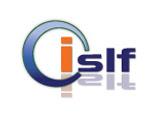Understanding IEC Code Fees: A Comprehensive Guide for Indian Importers and Exporters
Import Export Code (IEC) is the vital first step for businesses in India who wish to trade internationally. The DGFT issues this unique 10-digit number, which is needed for the conducting import and export activity. In September we put together a guide to application costs and fees for those who may apply for an IEC. In this ultimate guide, we tell you all you need to know about IEC code fees and costs for Indian businesses.
Government Fee for IEC Registration
So, the standard government fee for IEC registration in India is ₹500. This fee is payable directly to the Directorate General of Foreign Trade (DGFT) via their online portal. Candidates can pay the fee using net banking, credit/debit cards and UPI. The list of fees for new IEC registrations is fixed, irrespective of the type of business or its dimensions.
However, you are a trained professional.
The Government fee is standard but several businesses avail of professional services for the IEC application process. The charges for these services differ significantly, usually between ₹1,000 and ₹3,500. Therefore, the total charges to obtain an IEC code with the government fee usually range between ₹1,500 and ₹4,000.
Just make sure to shop around and compare services, as some agencies may provide better rates. A few portals, for example, claim professional charges of ₹999, which takes the total cost (with government charges) to ₹1,499.
Cost Breakdown & What’s Included
If you decide to hire a pro, here’s what you can expect to be included in the service:
1. Get help filling out forms and writing up documents
2. Instructions on supporting documents needed
3. Submitting application on your behalf
4. Follow-up with DGFT if needed
5. Issuance of IEC certificate Delivery of IEC certicate
Additional Costs to Consider
IEC Registration Fees — Cost Breakdown While the initial IEC registration price is quite simple, there are other expenses that organizations ought to know about:
1. Modification Fees: After you register your IEC profile, if you need to make changes, you’ll be charged a modification fee of ₹200.
2. Annual Updates: Although this isn’t really a ‘cost’, businesses must renew their IEC details every year. If you fail to do so, the IEC may be deactivated.
3. Document Notarization — You might be required to notarize some of the supporting documents and that may charge extra.
Applying Without Professional Help
Low cost IEC those who would want to save cost can directly apply IEC code by going to DGFT website. This method only requires the ₹500 government fee. This process is, however, complex and requires knowledge and precision to ensure all standards are satisfied.
Updates and clarifications made recently
To simplify the IEC registration process and reduce costs, the Indian Government has taken initiatives:
1.Digital Signature Certificate (DSC) Not Required: Earlier, applicants would have to furnish a digital signature certificate (DSC) worth ₹1,000-₹2,000. This extra expense should now be avoided, by using Aadhaar authentication instead.
2. The digitalization of the whole process is also helping to minimize physical documentation as well as physical presence.
Customs Consultancy Services
Companies that are engaged in trading and working with import-export on a regular basis can also opt for customs consultancy service to be provided as support. (This service may vary beyond normal IEC registration services and thus the other element may be:)
1.Assistance with customs valuation.
2. Clarifications with regards to instances of HSN code classification
3. Assistance with drawback and refund claims
4. Assisting project with import registration and finalization
5.Guidance for foreign trade policy compliance
Although this incurs an extra charge, it might save companies cash in following ways — helps to comply and gain to justify benefits available under some of the export promotion schemes.
Export License Costs
Do note that IEC code is a primary export license for most of the goods. But you might need more licenses to transport certain restricted items, which will incur extra fees. These costs fluctuate based on the type of goods and the exact license needed.
Conclusion
For an Indian business involved in import and export trade, securing an IEC code is a critical element. You have to pay a government fee of ₹500, but the overall expense can differ if you opt to enlist professional help. With an understanding of these fees and a comparison of the various offers, businesses can make the right choice that fits their budget and their needs.
Keep in mind that although cost is essential, you must obtain accurate and compliant registration to ensure smooth business operations worldwide. Regardless of whether you apply by yourself or hire a professional, ensure you meet all the DGFT guidelines to keep your import-export operations running smoothly and your IECs updated to avoid disruptions.
